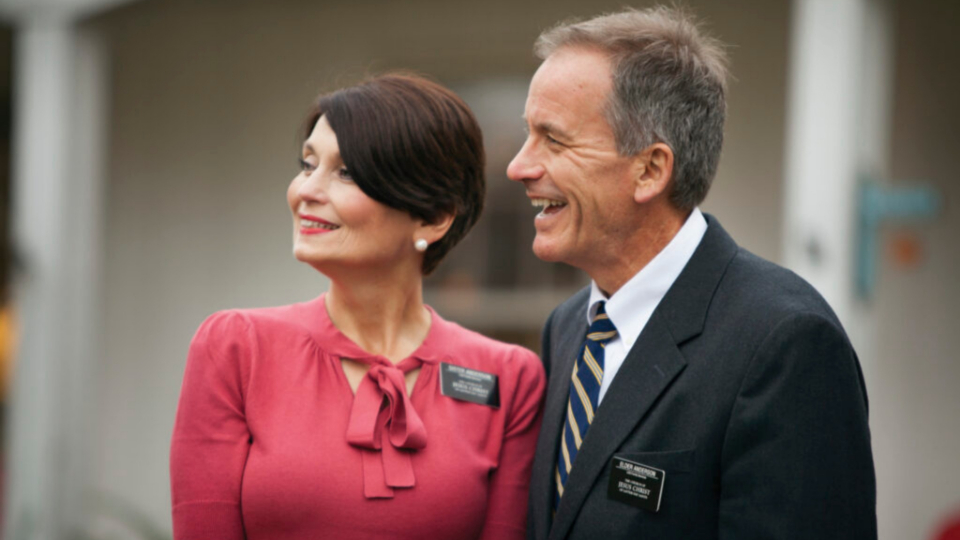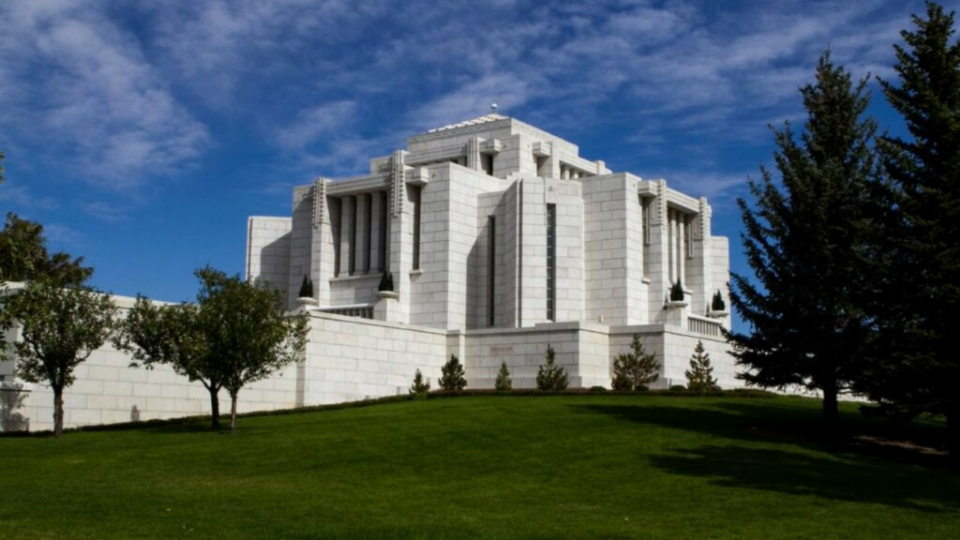
Senior-missionaries
A senior missionary couple stands and smiles. Senior service missionary assignments are now available in temples in the U.S. and Canada. 2021 by Intellectual Reserve, Inc. All rights reserved.This story appears here courtesy of TheChurchNews.com. It is not for use by other media.
By Scott Taylor, Church News
Effective immediately, senior service missionaries may be called and assigned to serve in the Church’s temples in the United States and Canada, filling roles and responsibilities that previously have been those of temple volunteers.
These senior service missionaries will continue to reside in their homes and will serve in their assigned temples where they live.
The new opportunities were detailed in a January 29 notice from the Temple Department to local Church leaders in the United States and Canada.
Nearly all long-term volunteer positions in the temple are becoming service missionary assignments. The exceptions are the volunteers serving in the temple baptistries and ordinance-support areas, such as the recommend desk and sealing office; they will continue to be called by the temple president through the standard recommendation process.
Senior service missionaries may serve in the following non-ordinance areas:
- Administration (office)
- Youth center
- Cafeteria
- Clothing or laundry
- Custodial
- Facilities maintenance
- Grounds
- Security
Prospective senior service missionaries with a current temple recommend may apply online at SeniorMissionary.ChurchofJesusChrist.org. Temple service missionaries are recommended, called and set apart through the same process as other senior service missionaries, and they are expected to meet the same requirements and terms of service.
Most of the staffing in temples is done by volunteers, which include the temple presidency, matron and assistants to the matron as well as sealers, ordinance workers and other positions, explained Richard Sutton, the Temple Department’s director of field operations. Some paid staff also help accomplish the work of keeping the temples operating, he added.
Ordinance workers are set apart and given authority to perform ordinances; other volunteers are assigned to perform a myriad of essential functions unrelated to temple ordinances.
With this recent change, longer-term volunteers in the temple will now follow the process of being called as service missionaries that mirrors what other Church departments use, Sutton said, adding that following the similar patterns allows for consistency and ease of calls and assignments for leaders and members.

Cardston-Alberta-Temple-
Cardston Alberta Temple 2021 by Intellectual Reserve, Inc. All rights reserved.“The ability for young service missionaries to have temple assignments as part of their missionary call was introduced previously, and this now provides senior service missionaries to have a similar opportunity,” he said. “This change was prompted by the Temple Department and Service Mission Office counseling together to provide more and enhanced opportunities for service in the temple by members of the Church.”
All the standard requirements for a service missionary apply, with some flexibility given to the time and schedule. The stake president becomes the service missionary’s “mission president,” but the missionary serves under the direction of the temple president.
“As an example, a member could be called to serve as a service missionary and assigned to serve in the administration office of the temple,” he said. “With this assignment, their stake president would be their mission president — following up on their spiritual needs and how they are doing on their mission. The temple president would provide direction as they serve in their assignment in the temple, and a clerical leader in the administration office of the temple would lead them in their day-to-day work in the temple.”
Like all mission calls, the assignment is for a defined period of time, with the missionary able to seek an extension to the call if so desired.
Copyright 2020 Deseret News Publishing Company